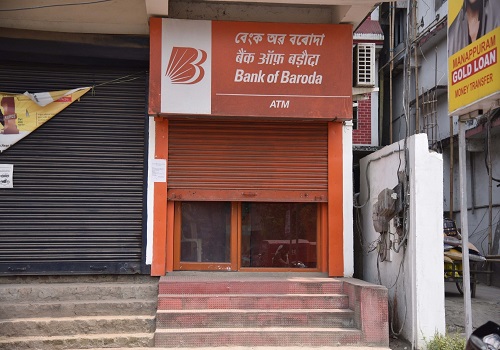Kaizen Institute presents the strategy for revolutionizing the service economy in India

Follow us Now on Telegram ! Get daily 10 - 12 important updates on Business, Finance and Investment. Join our Telegram Channel
Section 1: Contextualising Service Economy in India
A service economy refers to an economic system that is primarily driven by the provision of services, rather than the production of goods. India has undergone a remarkable transformation over the years, transitioning from an agrarian economy to a services-driven powerhouse.
Today, the services sector is not only the dominant sector in India’s GDP, but has also attracted significant foreign investment and contributed significantly to exports & has provided large-scale employment. According to a press release1 issued by the ministry of finance in January 2023, the Service Sector in India has witnessed tremendous growth. It witnessed a swift post Covid rebound in FY22, growing year-on-year (YoY) at 8.4%. The Economic Survey 2022- 232 highlighted that the Service Sector has ample scope to generate employment, earn foreign exchange and contribute to India’s external stability.
In India, the service economy comprises of several industries including banking & finance, hospitality & tourism, telecommunications, healthcare, education & skill development, entertainment & media, and other community, social, and professional services that play a dominant role in generating employment and steering economic growth.
The Micro, Small and Medium Enterprises (MSME) sector has emerged as a highly vibrant and dynamic sector of the Indian economy over the last five decades. The MSMEs are widening their domain across sectors of the economy, producing diverse range of products and services to meet demands of domestic as well as global markets.
An analysis of Udyam Registration3 presents that the MSMEs in service sector, at 64% of the registrations comprise a larger proportion of Udyam Registration as compared to those MSMEs in manufacturing sector. According to the Udyam Registration report, hospitality, transport, real estate, banking and financial services emerged as the key industries in service economy.
Unlike the manufacturing sector, which leverages tools such as productivity indices and standardized surveys, measuring output and productivity in the service economy can be challenging due to the intangible nature of services and the diverse range of activities within the sector. While factors such as gross value added (GVA), employment generation, revenue and sales growth, labour productivity etc. are usable as measures of output and productivity in service economy, it is imperative to highlight that the sector lacks a comprehensive framework for measurement.
There is, thus, a need to address this gap and develop methodologies and tools to track and measure efficiency and productivity in the service economy. It’s critical to have an understanding of such tools and methodologies as they can enable various stakeholders – enterprises, policy-makers, financing institutions – to have an enhanced understanding of output and productivity of the enterprises, and accordingly plan for strategic policy interventions which can further contribute to the growth of enterprises in the services economy
It's in this context that Kaizen Institute, a global consultancy in business-performance and Operational Excellence, is submitting this white-paper to share experience of deployment of KAIZEN™ methodologies by enterprises in the services sector to create a knowledge base for the esteemed policy makers and accordingly conceptualize measures for deployment of KAIZEN™ framework for enterprises in the services economy.
Section 2: Deploying KAIZEN™ in the Service Economy in India
In order to sustain momentum, build frameworks & put in place methodologies to measure and improve effectiveness, the service sector should be adapting certain concepts and practices different from the traditional ones. KAIZEN™ is the one such solution. Practicing KAIZEN™ principles in the services sector can bring numerous benefits.
KAIZEN™ is a management philosophy and methodology that emerged in the manufacturing sector and has witnessed widespread adoption across industries. While its origins lie in manufacturing, KAIZEN™ has been successfully deployed in the Service sector, with organisations across this sector benefitting from its principles & applied techniques, driving people driven continual improvement & substantially enhancing overall efficiency and effectiveness across the board!
Here are some ways in which enterprises in the services sector leverage KAIZEN™ to drive improvements in the service economy in India:
• Seeking process perfection
* KAIZEN™ identifies, systematically reduces/ eliminates non-value-adding activities to render processes agile, productive & efficient.
* By mapping processes, organizations can identify bottlenecks, delays, defects, excessive hand-offs leading to long lead times & poor services. Simplifying processes, without losing controls, increases productivity, efficiency & lower lead times resulting in better services to customers.
Enhancing service quality
* KAIZEN™ orients processes towards customer needs to enable delivery of high-quality services, exceeding customer expectations.
* By implementing concepts like error-proofing, organizations can reduce errors and rework. Root-cause analysis helps prevent recurring problems, leading to improved customer satisfaction and loyalty
To Read Complete Report & Disclaimer Click Here
Above views are of the author and not of the website kindly read disclaimer










Tag News

Monthly Debt Market Update, September 2023: CareEdge Ratings





 320-x-100_uti_gold.jpg" alt="Advertisement">
320-x-100_uti_gold.jpg" alt="Advertisement">








